Learn about brain health and nootropics to boost brain function
New laws effective Thursday
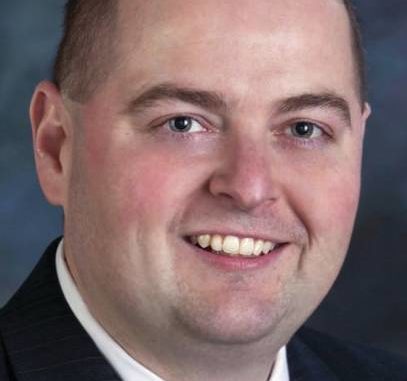
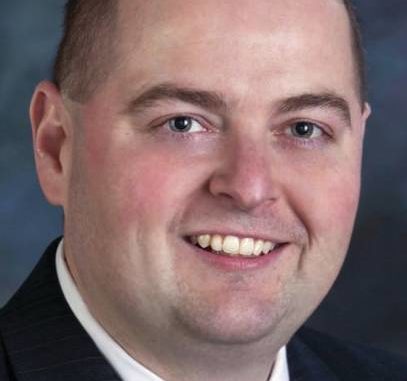
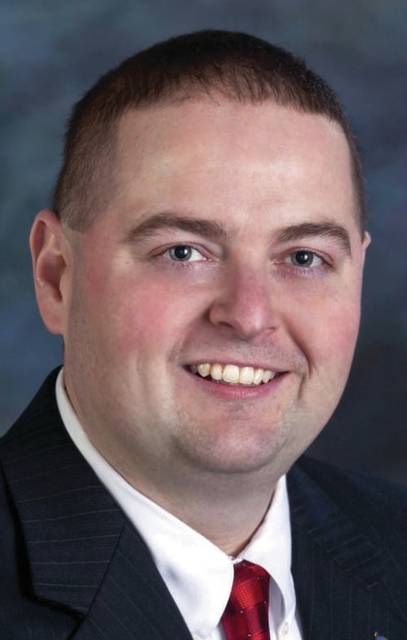
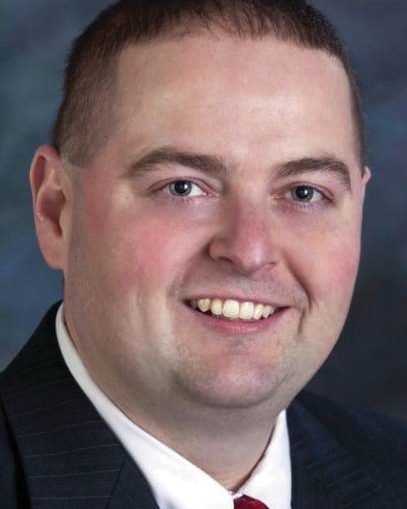
While the approval of new laws is a wintertime activity, their actual implementation doesn’t generally take place until the much-quieter days of summer. For 2019, that date arrives on Thursday this week.
This follows a constitutional requirement that says new laws take effect 90 days after the General Assembly completes its regular session. The only exceptions are if the law is an emergency or has a specific enactment date.
One law that I was especially glad to see pass will make our schools safer. The legislation takes a multi-pronged approach by expanding the number of trained school resource officers and guidance counselors and by standardizing and strengthening the best safety practices across the state. Legislative leaders have promised to boost funding for these programs when the next two-year budget is approved in 2020.
There were quite a few other bills to pass this year that I was proud to support. We passed a law to try to stop telemarketers from using local phone numbers to trick people into answering them, for example, and we strengthened the workplace rights of women who are pregnant or are new mothers. We also toughened the terroristic threatening law so those convicted of threatening churches or other public gatherings will face enhanced penalties.
One major change enacted this year is the effective repeal of the 23-year-old concealed-carry law, meaning those 21 and older who can legally possess firearms will be able to carry them concealed without needing a permit. The previous restrictions covering concealed weapons – barring them from courthouses, for example – are still in effect.

A horrible mistake or a horrible crime?
How can a parent mistakenly leave a baby in a car? Accidents happen. But how does a parent work the entire day and forget his/her most precious gift is strapped into a carseat — trapped inside a sweltering vehicle?
Did you know that 2018 was the deadliest year in US history for child hot car deaths? In 2018, 52 children died in hot cars. Since 1998, almost 800 children have died from vehicular heatstroke. That’s according to The National Safety Council. www.nsc.org.
Other parents and people around the globe often rush to judgment when a child dies in a hot car. “Lock’em up and throw away the key!” or “That would never happen to me in a bazillion years!” or “How is it possible that a caregiver could forget a child in a car?”
I, too, rushed to my own conclusions. Thinking about parents so busy running round-and-round on the hamster wheel that they forgot their own child. How could they be so stressed or so self-absorbed?
But, as I read the 2009 article “Fatal Distraction: Forgetting a Child in the Backseat of a Car Is a Horrifying Mistake. Is It a Crime?” my tears kindled compassion, sorrow, and sadness for the suffering parents. Gene Weingarten’s article detailing the life-stopping, life-traumatizing, and life-changing, stories of Miles Harrison and other parents changed my belief.
“The charge in the courtroom was manslaughter, brought by the Commonwealth of Virginia. No significant facts were in dispute. Miles Harrison, 49, was an amiable person, a diligent businessman and a doting, conscientious father until the day last summer — beset by problems at work, making call after call on his cellphone — he forgot to drop his son, Chase, at day care,” penned Weingarten. “The toddler slowly sweltered to death, strapped into a car seat for nearly nine hours in an office parking lot in Herndon in the blistering heat of July.” Grab a box of tissues and read Weingarten’s article at www.kidsandcars.org. Weingarten won a Pulitzer for his story which was first published in The Washington Post.
In the 1990s, the introduction of passenger side airbags made it unsafe to put small children in the front seat, and several states passed laws requiring children to ride in the back. www.thecrimereport.org.
Neuroscientist David Diamond, a professor at the University of South Florida, studies how normal (i.e., attentive and loving) parents and caretakers, without evidence of abuse or neglect of children, and without evidence of drug abuse or organic brain dysfunction, unintentionally and unknowingly, leave children in cars.
Since 1990, 146 parents/caretakers have been convicted on charges ranging from murder to negligence in heat stroke fatalities after forgetting their child was in the vehicle, according to KidsAndCars.org.
Should a parent be charged, convicted, and sentenced to prison for unintentionally forgetting an infant or toddler in a car? Is it a horrible mistake or a horrible crime?
It’s a horrible mistake. A gut-wrenching mistake. A traumatic mistake. But, it’s a mistake.
These unintentional and unfortunate deaths are the result of human error. Families are further traumatized when police and prosecuting attorneys pay attention to public outrage and proceed with probation or prison sentences.
What say you?
Melissa Martin, Ph.D, is an author, columnist, educator, and therapist. She lives in Southern Ohio.
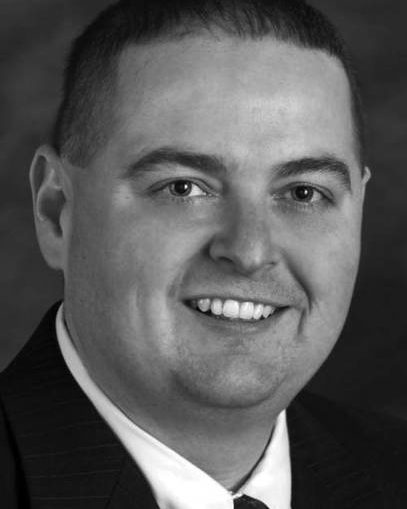
While the General Assembly is at its busiest during the first few months of the year, when new laws are approved, the summer and fall are vital as well to the legislative process.
The interim, as this time is called at the Capitol, starts in June and runs through mid-December, and it gives the 14 main House and Senate committees a less-hectic setting to come together to review the real-world impact of legislation and to learn more about issues affecting the state.
On Monday last week, the Health, Welfare and Family Services Committee helped to kick off the interim with a focus on mental health and homelessness. During that meeting, legislators learned that the number of those in Kentucky who are homeless or fleeing domestic violence has dropped significantly in recent years. This total went from 4,998 people in 2014 to 3,688 people in 2018, with nearly half of that population located in Jefferson and Fayette counties.
On Thursday, the Tourism, Small Business and Infrastructure Technology Committee heard from Kentucky State Parks about the nearly $100 million in wide-ranging upgrades the system has undertaken in recent years.
In another broad overview, this one on Kentucky’s coal industry, legislators on the Natural Resources and Energy Committee reviewed the ongoing challenges we face in this energy sector.
Coal severance tax receipts that reached $311 million in 2011, for example, are below $100 million now. On the other hand, officials say coal’s outlook “looks to be flat but stable.” It’s worth noting that coal still provides three-fourths of Kentucky’s electricity, although that is down from 94 percent a decade ago.
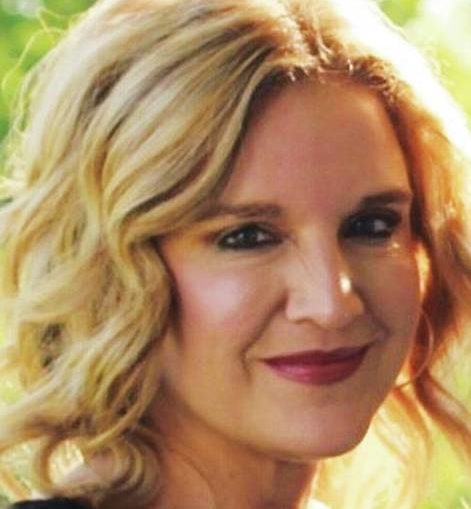
If we don’t stop blaming others every single day for our shortcomings, then we will never be able to embrace ourselves fully.
Can we start recognizing our faults? We struggle with seeing ourselves as having many imperfections. If we fail a class, it’s our fault. The teacher is in no way, “out to get you.” A teacher takes pride in what he or she does every day and they truly want you to learn. Did you do all your assignments? Did you work, truly work, to your full potential? Did you participate in every single reading that was handed to you? If you failed, then the answer is likely no. It’s far easier and fulfilling to admit your lack of work to your teacher than it is to accuse an educator of not caring about your success. The reality, my dear friends, is that you have to care about your grade more than they do. By taking responsibility, you will, in turn, earn respect.
Nearly all of us have been reprimanded, written up, or fired from a job at some point in our lives. We tend to blame this on poor management. Were you timely in completing every work assignment? Did you show up on time every single day without succumbing to that enticing snooze button? Did you partake in the “leave your attitude at the door” movement when all you really wanted to do was crawl back into bed and cry? It may feel like you are trying to put a crack into the cement when you have to put that “fake smile” on your face, but we do it anyway.
It is never the fault of management when you haven’t done the job that you were paid to do. We must own the fact that we failed, and that’s okay!! We all fail sometimes. Maybe it just wasn’t the job for you, maybe it wasn’t fulfilling. Life is full of tests and experiments. Quickly recognize what went wrong and move on to a different occupation. There is no time for blame.
How many of us can truly say that we have never been “cut” from a team, or eliminated before we had even started? If you are one of the few lucky people that excelled in sports through your entire career, then congratulations! For the rest of us, I would like to stress that no, it wasn’t the coach’s fault. Did we train the right way? Did we practice until blisters formed on our hands and feet? How bad did we truly want it?
A coach is a mentor, who typically has other daytime obligations like a career and a family. They are there because they are impassioned with coaching you. In most cases, they work for very little monetary reward. Coaches are our mentors and typically form a relationship with their players that last throughout their lifetime. If you fail at a sport, try again! Practice harder. Schedule a meeting with your coach and ask he or she what you can do to improve. They will respect the fact that you care enough to swallow your pride and ask for help. It’s not the coach’s fault, rather your own disinterest or lack of physical ability. Sometimes we do not succeed in everything that we do, and that’s okay. We all have different talents and abilities that mold who we are.
You will never be able to realize your potential if you cannot outwardly recognize your failures and inadequacies. Let’s teach our children that to blame, means to fail. Let’s teach them that blame is a product of self-denial and nothing can be learned or improved upon while not being humble. If you find yourself pointing a finger, then you never find yourself at all.

They didn’t know. That tragic day would be their last day alive. They woke-up and went about their usual morning routine. Coffee, shower, breakfast. Feed the kids. Feed the dog. Kiss the spouse good-by. Drive to work.
They didn’t know. The Virginia Beach mass shooting left 12 people dead — innocent human beings that died unexpectedly. Photographs of the 12 victims can be found on various news websites. The 12 people had family, friends, and relationships. They had daily lives. Four people were wounded. Four lives forever changed. Survivors.
They didn’t know. Trauma. Tragedy. How can the human mind process such a horror? Shock. So surreal. How much can a human heart bear?
They didn’t know. Eleven of the victims were city employees. Another was a contractor seeking a permit at the municipal center. Devastation. Disaster.
They didn’t know. A deranged employee. A cowardly coworker. Twelve precious people gone to soon. A city left in turmoil. A nation in mourning. Disbelief. Distress.
They didn’t know. Twelve people — mothers, fathers, sons, daughters, grandparents, sisters, brothers, aunts, uncles, cousins, friends, coworkers. Human beings with purpose and passion.
They didn’t know. They would not be returning home at the end of the day. Empty beds.
Twelve caskets. Twelve funerals. Twelve graves. Heartache. Heartbreak. Weeping. Weeping. Weeping. Emotional pain encased in each teardrop. A river of tears for 12 human beings.
Grief. But so much more — lives forever changed for those left behind. How do the living carry on when a member of humanity murders loved ones? How do you make sense of the senseless? Shattered safety. Shattered security. Shattered.
I looked at each photograph. Each of the 12 victims once breathed. They loved, laughed, and lived. They cried. They are a part of humanity.
We look to God for answers. But there are no answers now. Someday there will be answers.
There is no closure. Closure is a myth — a tidy word meant to comfort the living. A sense of loss remains. Nonetheless, the hurt becomes less and less as time produces a scab — then a scar. But there is no final healing — a future day on earth when all is well for the 12 families and people left behind. Birthdays and death days hold memories.
We carry on because we must carry on. Hope sustains the weary soul. The grave holds the body, but not the spirit.
How could they have known?
Melissa Martin, Ph.D, is an author, columnist, educator, and therapist.

Buttermilk biscuits and sausage gravy—a staple of the Appalachian culture. A traditional meal for country cook’in the mornings.
And my mother made the dynamic duo from scratch. Biscuits: flour, shortening, and buttermilk. For a season, she baked the store-bought biscuits from a canister, but returned to homemade. Sausage gravy: flour, milk, butter, salt, pepper. Fried apples functioned as a side dish.
Recently, I decided it was time. Biscuits and gravy were calling. It would be another step toward living in a world without my mother. A world without her homemade breakfast and brunch get-togethers. The Appalachian queen of biscuits and gravy died May 3, 2017.
And so I drove to the best place around to order the culinary combination. It was early and quiet in the restaurant. The main dish arrived shortly after ordering.
Starring at the plate and bowl, my mind replayed a video of memories. The sense of smell is the strongest sensory memory and it transported me back into another time and another place. Food memories are often bittersweet. Mom standing at the stove stirring her concoction in an iron skillet. Opening the oven door to make sure the biscuits didn’t burn. So many conversations over biscuits and gravy. As a youngster, not once did I consider that one day she would die unexpectedly.
Feelings flooded in from my food memories. I wanted to look across the table and see my mom. And thank her for the bazillion biscuits she’d baked over her lifetime.
Noticing the apple butter condiment, another memory popped up. My grandmother and mother washing, peeling, slicing, and dumping apples into an outdoor iron cauldron. Adding brown sugar, cinnamon, and salt. Stirring and talking the entire afternoon. Mother-in-law and daughter-in-law; the best of friends. The aroma of apples and cinnamon filled the air as the mixture boiled and bubbled. As a youngster, not once did I consider that one day they both would pass away.
“These days, apple butter is mostly produced at community get-togethers, fall festivals and courtyards of aging country churches, but a hundred years ago producing apple butter was a family event,” according to a 2018 article in Appalachian Magazine.
Berkeley Springs, West Virginia and Grand Rapids, Ohio has an annual apple butter festival. There is also an Apple Butter Stir Off held on the first weekend in October in Belpre, Ohio.
Before bakeries and Betty Crocker arrived, breakfast items were made from scratch in cozy kitchens. Extravagant dinning rooms did not exist in most Appalachian homes.
“What we eat and how we cook our foodtells a story about who we are, where we’ve come from and what we care about. Our food also connects us to other people — family and friends with whom we share our meals. That’s why our favorite dishes often stir up strong memories of people we love,” according to a 2017 article on NPR.
Tasty memories. Teary memories. The past lives on in the deep alcove of my mind. Paying the bill, I leave the restaurant with my memories and a doggy bag with a leftover biscuit.
My next memory meal will be cornbread and brown beans.
“The food memories will remain. There must be a corner table in heaven; a place where one can meet with those we’ll forever love. A place where food memories come to life once more,” penned Sandra Gutierrez.
Melissa Martin, PhD, is an author, columnist, educator, and therapist. She lives in Southern Ohio.
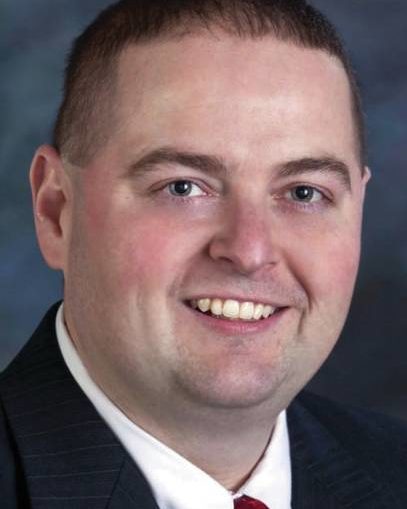
There is a proverb that says it is “better to see something once than to hear about it a thousand times.” That’s especially true when it comes to Kentucky tourism.
We certainly have no shortage of things to do, with some of our most popular destinations including 46 state parks, a national park at Mammoth Cave and such unique places as the Bourbon Trail; Land Between the Lakes; the farms and tracks that define our signature horse industry; and Civil War battlefields. There are also numerous festivals, museums, sports venues, tourist stops, restaurants and convention centers, plus countless places to boat, fish, hunt, camp, or hike. Those who say there is nothing to do aren’t really looking.
With so much to offer, tourism has an outsized impact on our economy. The latest figures show that it generates about $15 billion annually, which in turn provides more than $1.5 billion in state and local tax revenue. That’s the equivalent of about $1,200 per household in the commonwealth, according to the Kentucky Travel Industry Association.
Almost 140,000 of Kentucky’s jobs are tied to tourism, and its indirect economic benefit adds almost 60,000 more.
Out in the state, the Kentucky Bourbon Trail is celebrating its 20th anniversary this year, and it has grown significantly in that time. It features 16 signature distilleries and 20 craft ones, and their combined visits now regularly top one million a year.
There is never a bad time to take in many of these events and locations, but summer is perhaps the most popular season now that school is out. The state has a wonderful website that can help you find where to go. It’s https://www.kentuckytourism.com.
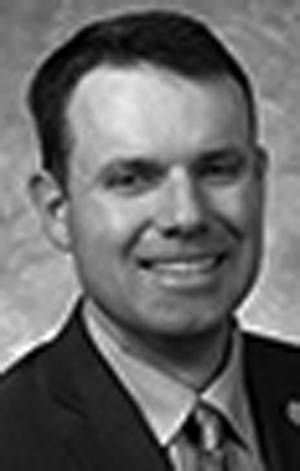
As we look forward to cookouts, shopping, and celebrations this Memorial Day weekend, it is imperative to remember those who made the ultimate sacrifice. They are the brave men and women who fought and died while protecting our freedom, a privilege we take advantage of here in the United States. These American heroes deserve our upmost honor and respect. Collectively, I ask that we pay tribute and reflect on the true meaning of our 3-day weekend.
Formerly known as Decoration Day, the last Monday in May is a time to memorialize fallen military service members. This solemn day of remembrance is often felt most deeply among those who have personally had a loved one die in service to our nation.
I encourage you to join in a nationwide commemoration this Memorial Day, the “National Moment of Remembrance.” I ask all Kentuckians to pause for a moment of silence at 3 p.m. local time on Monday, May 27.
While we remember those who served this Memorial Day weekend, I also encourage you to be proactive in your communities. Whether by volunteering for a local veteran-oriented charity or attending weekend festivities, utilize this opportunity to positively affect the lives of military families and their loved ones.
Families who have lost a loved one in the line of duty are known as “Gold Star Families.” In Kentucky, we have the “Gold Star License Plate” for family members looking to honor their beloved ones who gave the ultimate sacrifice. If you or a family member are interested in obtaining one of these special license plates, please do not hesitate to contact the Kentucky Department of Veterans Affairs. You can call them at 502-564-9203 or visit their website at www.veterans.ky.gov.
During the 2019 Regular Session of the General Assembly, the Veterans, Military Affairs, and Public Protection Committees worked diligently to implement better public policy for Kentucky’s servicemen and servicewomen. As your state senator, I will continue to offer my support for legislation and programs serving military families.
It is an honor to serve you in Frankfort and I wish you and your family a safe and blessed Memorial Day weekend.

“Our debt to the heroic men and valiant women in the service of our country can never be repaid. They have earned our undying gratitude. America will never forget their sacrifices.”—Harry Truman
The “official” start of summer is upon us as we celebrate another Memorial Day in the Ohio Valley and with this comes the opportunity for all of us to pause and reflect on our freedom. As I’ve aged I’ve found myself reflecting more and more on my personal blessings. I suppose as I’ve witnessed the passing of a generation within our family this past year, it’s caused me be more introspective with regard to life in general, and more importantly my freedom.
One only needs to visit another country to fully appreciate how “good” we have it. Sure every one of us can probably name several things to be disgruntled with, but seriously the vast majority of us don’t have to worry about any real transgressions against our personal freedoms. The reality is that most of us have never encountered a situation where we had to put our lives on the line to protect the freedom that we have come to enjoy on a daily basis. For many it’s a day off of work, and we’ll go about our business as usual without giving it a second thought. At our barbecues, parades, picnics, family and neighborhood gatherings we’ll be able to eat, drink, enjoy conversation, play games, all without ever giving a thought to what the day actually means, let alone those brave men and women whose lives were lost all for the idea of freedom.
On January 6, 1941 President Franklin D. Roosevelt delivered his eighth State of the Union address, now known as the Four Freedoms speech, with the intention of rallying the American people. Following the end of World War II, the Four Freedoms formed the basis for the Universal Declaration of Human Rights, chaired by former First Lady Eleanor Roosevelt. Today is a great day to revisit those:
“In the future days, which we seek to make secure, we look forward to a world founded upon four essential human freedoms. The first is freedom of speech and expression – everywhere in the world. The second is freedoms of every person to worship god in his own way – everywhere in the world. The third is freedom from want…everywhere in the world. The fourth is freedom from fear…anywhere in the world. That is no vision of a distant millennium. It is a definite basis for a kind of world attainable in our own time and generation.” — Franklin D. Roosevelt
Men and women would give their lives in the belief of protecting and furthering these very principles, which in many parts of the world are still unattainable, and yet still some of us will not recognize that we have been afforded these very freedoms because of those who stood in defense of them. Today would be a great day to pause and contemplate how our lives might be different had it not been for those brave men and women who made the ultimate sacrifice to protect our freedom. I firmly believe that we must not forget what this day is all about. Yes, we should enjoy the time that we’ll have with family and friends, all while gratefully remembering those who gave it all.
“The United States and the freedom for which it stands, the freedom for which they died, must endure and prosper. Their lives remind us that freedom is not bought cheaply. It has a cost; it imposes a burden. And just as they whom we commemorate were willing to sacrifice, so too must we—in a less final, heroic way—be willing to give of ourselves.”—Ronald Reagan
Lucky are the children who grew up in the 1980’s. They were poorer but much richer times.
I got out of bed on a Saturday morning in 1984 and poured myself a bowl of Lucky Charms, careful not to pour too much, because cereal was considered gold in my house. We didn’t have the option to eat cereal for dinner just because mom was making minute steaks with mushroom gravy. We ate that minute steak like it was the last meal we would have for the day, because it was.
If I was lucky enough to find that magical toy in the cereal box, then I would have to fight for it. I would fight my brother like that toy was worth one million dollars. The toys in the Lucky Charms boxes were better than the Cornflake boxes where you had to mail in your proof of purchase and a $5 money order in exchange for an “Olympic” jacket. Boy was I disappointed when I received a basic piece of plastic in the mail after waiting for six long weeks. How was I supposed to wear a piece of plastic to school after I had bragged about my Olympic jacket?
After eating my cereal, which mostly consisted of marshmallows by the time I was done picking through it, I washed that cereal bowl. Let it soak? Absolutely not. You didn’t do that at our house. You washed your dishes by hand, and then you dried it. After all, it was almost a mortal sin to put a wet dish away. It was then time for me to exit out of my front door in order to catch the bus.
We never had the luxury of our parents driving us to school. Did parents even do that? If both parents worked, then you were out of luck. Before catching the bus, I would ask my mother for lunch money. Does anyone remember lunch money? My children have no concept of what that is. For them, lunch money is something that magically appears in a “lunch account” at their school. They actually swipe a card that has their picture on it, and BOOM, lunch!! Back in 1984, if you didn’t have lunch money, then you didn’t eat lunch. The only card that I had in 1984 was a library card.
Packing your lunch was a thing of mystery. We couldn’t afford things like Rainbow Bright lunchboxes and thermoses. We ate at school, and if we didn’t like it, then we ate it anyway. You were not going to get another meal until dinnertime in the 80’s.An after school snack consisted of Kool-Aid, tropical punch flavor if you were lucky.
We passed notes in class, and if we got caught doing it, we would be shown the dreaded paddle. The paddle wasn’t the biggest fear however, the biggest threat was to have that note read out loud in front of all of your classmates. That’s a character builder that our children just don’t get to experience these days. That paddle WANTED to be used and that teacher WANTED to read that note.
Recess looked a lot different in the 80’s. We played kickball, we played tag, and we did anything we could to sweat. Kids in the 80’s liked to sweat. We ran hard while the teachers drank coffee and smoked cigarettes in the teacher’s lounge. That teacher’s lounge was a mystery to us. What we wouldn’t have given to get a glimpse inside that magical room.
I tried out for the cheerleading team and I didn’t make it. My biggest fear at that time had become a reality. The embarrassment and the heartache had me in tears before that 3 p.m. bell rang. I tried so hard to swallow that lump in my throat, but to no avail, I turned into a water fountain. They announced who made the team at school in front of everyone, but I lived. Not everyone made the team in the 80’s and not everyone got a trophy. I didn’t make that team because I wasn’t good enough. I didn’t work hard enough. You better believe that I worked hard that entire summer so that I wouldn’t feel that redness in my face again the next year, and guess what? I made the team. I made the team because I worked for it, not because I was just simply there.
And then there was the dinner table. You all sat at the table in the 80’s. You didn’t watch TV and have dinner while other family members were in another room playing on their phones and computers. You sat, as a family. You laughed, you argued, and you talked about your day. You ate chicken livers, potato cakes, and whatever vegetable that you had pulled out of your garden.
How do we solve the problems of the world? We don’t solve them by ignoring what is right in front of us. We don’t solve them by staying wrapped up in social media. Families that are portrayed on social media as perfect have their own problems, believe it or not. We solve our problems by bringing back the dinner table and putting life back into our homes. If there were a time machine, I would be the first one in line. Destination 1984, please.
Click here to view full article